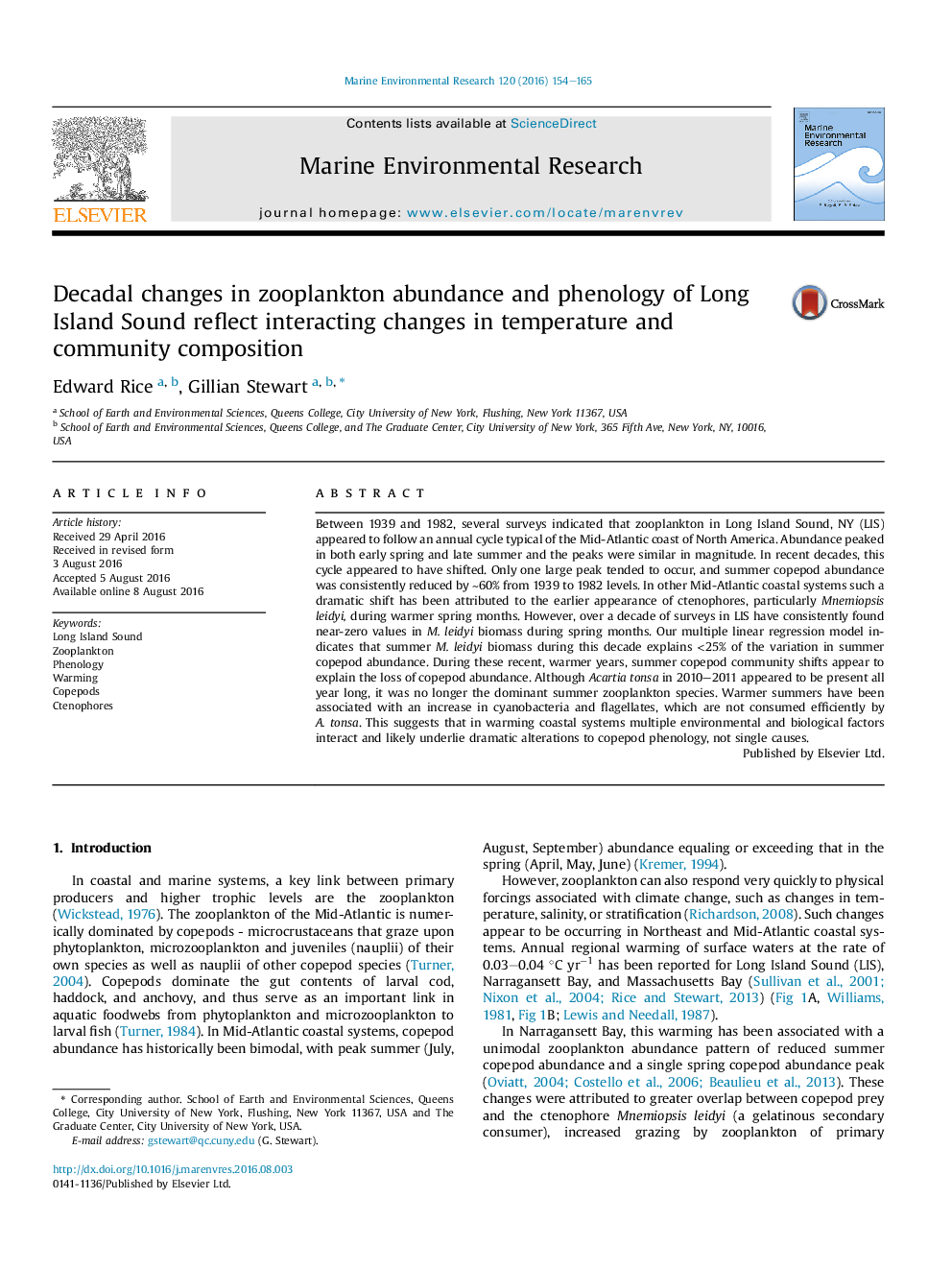| Article ID | Journal | Published Year | Pages | File Type |
|---|---|---|---|---|
| 4550589 | Marine Environmental Research | 2016 | 12 Pages |
•Long Island Sound surveys from 1939 to 2012 show ∼60% loss of summer copepods since 1982.•Mnemiopsis leidyi can explain ∼25% summer copepod loss, but were absent in spring.•M. leidyi cause trophic cascades, increasing microzooplankton and depressing copepods.•By 2010–11, Acartia tonsa were <50% of copepods during summer, but were present year-round.•Temperature, phytoplankton and predation reorganized copepod abundance and phenology.
Between 1939 and 1982, several surveys indicated that zooplankton in Long Island Sound, NY (LIS) appeared to follow an annual cycle typical of the Mid-Atlantic coast of North America. Abundance peaked in both early spring and late summer and the peaks were similar in magnitude. In recent decades, this cycle appeared to have shifted. Only one large peak tended to occur, and summer copepod abundance was consistently reduced by ∼60% from 1939 to 1982 levels. In other Mid-Atlantic coastal systems such a dramatic shift has been attributed to the earlier appearance of ctenophores, particularly Mnemiopsis leidyi, during warmer spring months. However, over a decade of surveys in LIS have consistently found near-zero values in M. leidyi biomass during spring months. Our multiple linear regression model indicates that summer M. leidyi biomass during this decade explains <25% of the variation in summer copepod abundance. During these recent, warmer years, summer copepod community shifts appear to explain the loss of copepod abundance. Although Acartia tonsa in 2010–2011 appeared to be present all year long, it was no longer the dominant summer zooplankton species. Warmer summers have been associated with an increase in cyanobacteria and flagellates, which are not consumed efficiently by A. tonsa. This suggests that in warming coastal systems multiple environmental and biological factors interact and likely underlie dramatic alterations to copepod phenology, not single causes.
